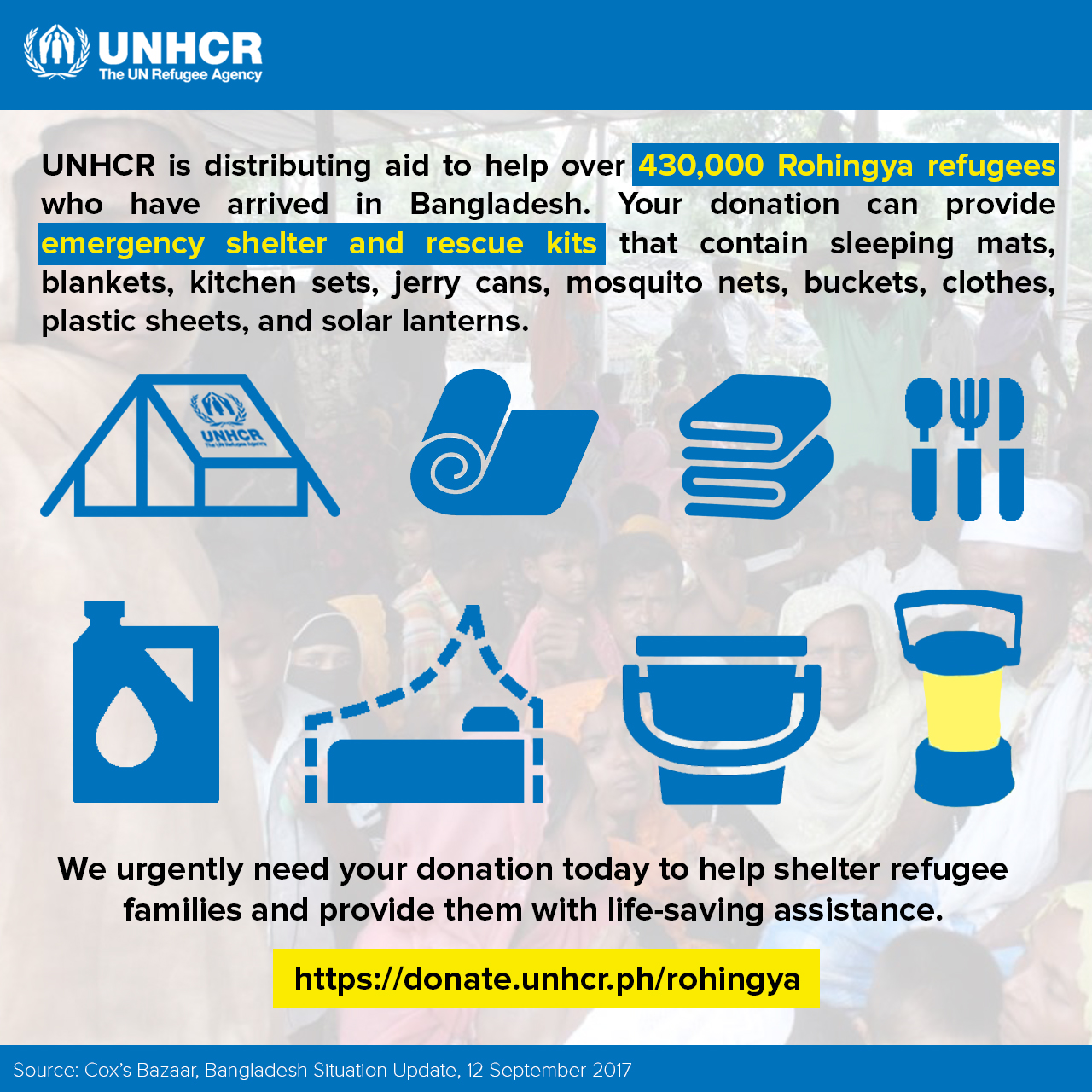Who are the Rohingya?

The Rohingya are a stateless Muslim minority in Myanmar. The latest exodus began on 25 August 2017, when violence broke out in Myanmar’s Rakhine State. The vast majority of Rohingya refugees reaching Bangladesh are women and children, including newborn babies. Many others are elderly people requiring additional aid and protection.
The two existing refugee camps of Kutupalong and Nayapara, established in the 1990s, were already home to over 33,000 Rohingya refugees before this influx. Now the camps’ population has soared to an estimated 77,000, well beyond existing capacity, with many new arrivals taken in by refugee families or hosted in the camps’ schools, community centres and other covered structures.
What is UNHCR doing?

We are leading the emergency response in the two camps, Kutupalong and Nayapara, where we are providing life-saving assistance and protection to the Rohingya refugees, in close collaboration with partners and authorities.
We are providing emergency shelter in many forms and wherever available, ranging from plastic sheeting to temporary bamboo sheds to common buildings, such as schools, being used as temporary shelters.
In addition, UNHCR is assessing capacity in the water, sanitation, health, and hygiene sectors to provide health or hygiene complications, especially with the influx of Rohingyas arriving at the refugee camps daily.
The UNHCR Protection Staff are also prioritizing the establishment of four child-friendly spaces and additional support for unaccompanied asylum-seeking children (UASC) and sexual and gender-based violence (SGBV) activities.
With your help, we can provide life-saving humanitarian aid to Rohingyas seeking safety and refuge.
Why is your help needed?

The vast majority of newly arriving refugees are now living outside the camps, in makeshift settlements and temporary shelters – often nothing more than tarpaulin held on bamboo poles. Infrastructure and services are overstretched. Other refugees continue to arrive in extremely poor condition. We are working with the Government of Bangladesh and other authorities to identify suitable spaces to accommodate them.
As more refugees arrive every day there is an acute need for emergency shelters and land to them, blankets and other forms of aid.
To lessen the risk of waterborne and airborne diseases, refugees and host communities urgently need more clean water, healthcare and other supplies. Pregnant women, young children and the elderly are especially vulnerable.
UNHCR requires an estimated USD 84 million to support the emergency response requirements from September 2017 to February 2018 in Bangladesh, which was already coping with devastating floods before the refugee influx. Much more needs to be done to meet the acute needs of children, women and men fleeing conflict.
As infrastructure and services continue to be overstretched, your help is urgently needed.
How can you help?
If you would like to support our work for the Rohingya families, please visit https://donate.unhcr.ph/rohingya.
Your donation is their lifeline.

